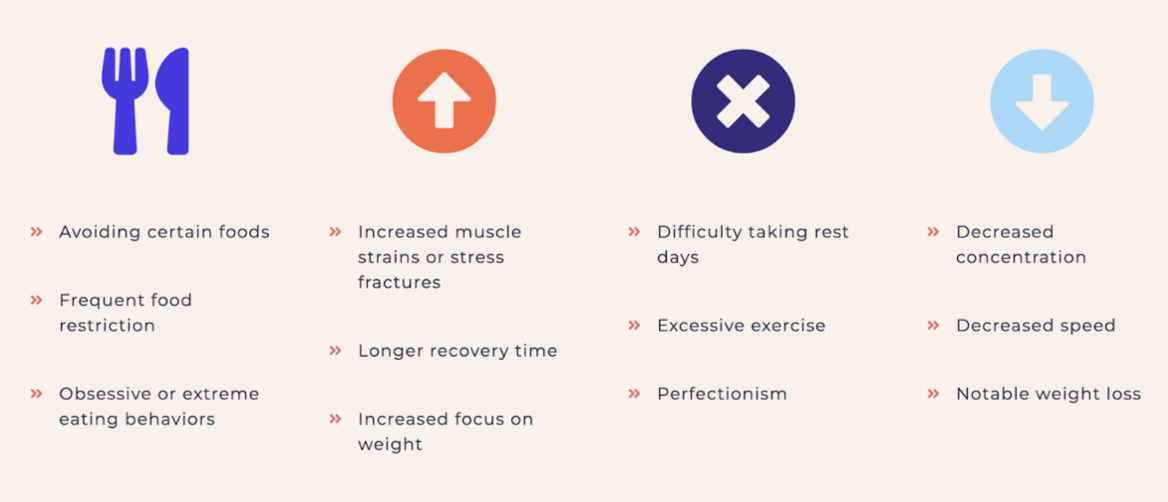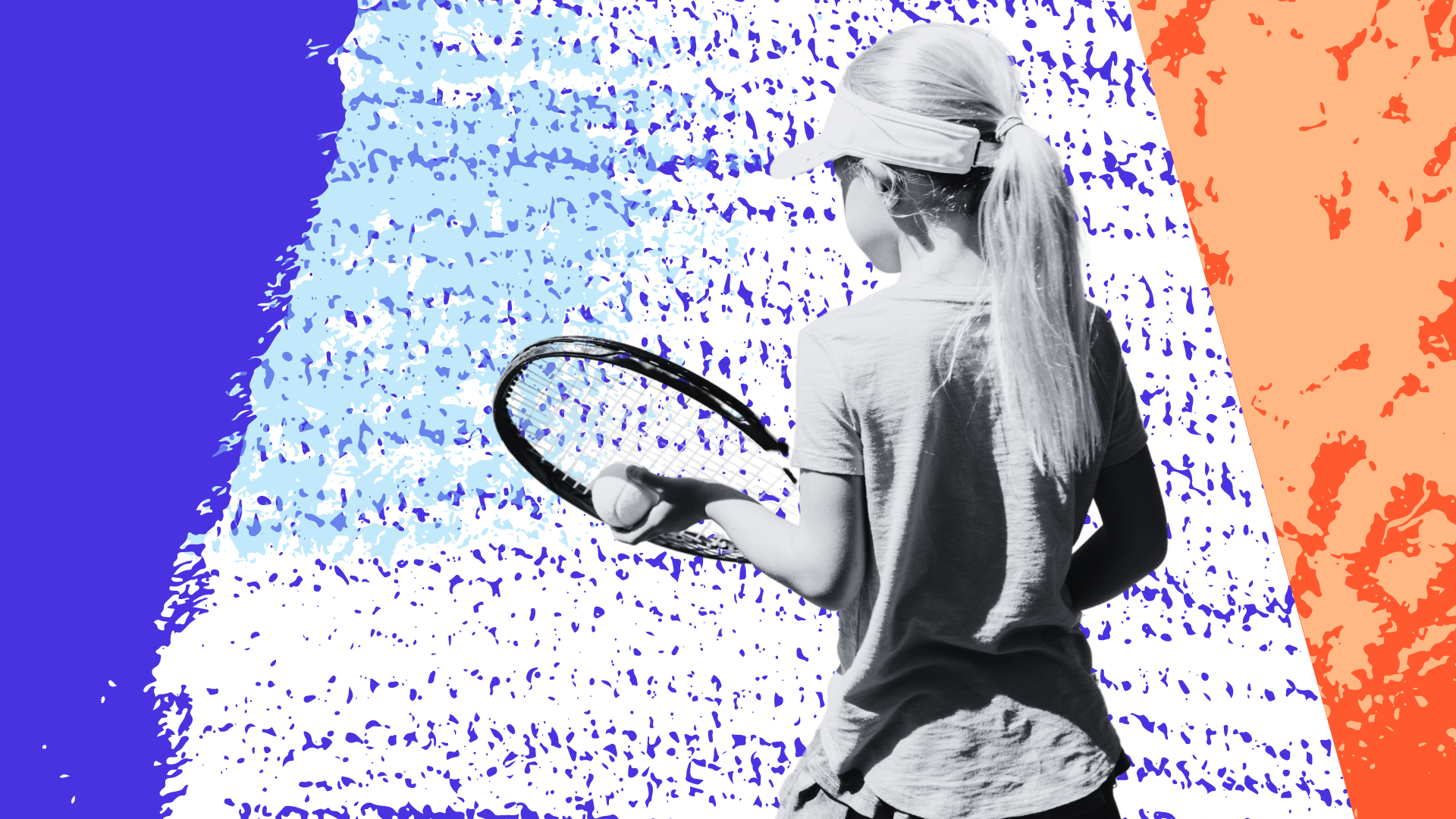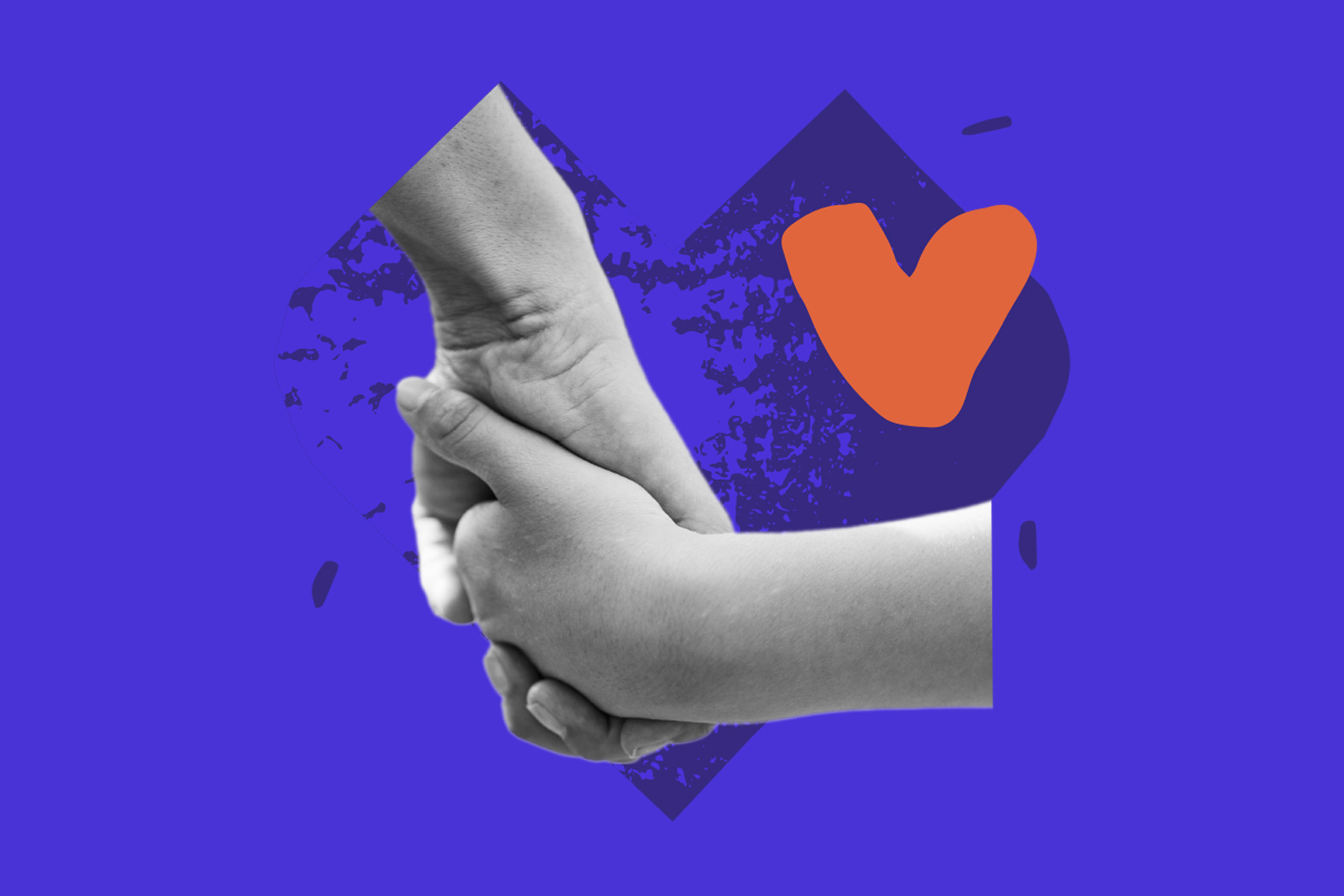POSSIBLE SIGNS AND SYMPTOMS OF AN EATING DISORDER

WHAT TO DO IF YOU SUSPECT AN EATING DISORDER IN YOUR ATHLETE
- Take warning signs seriously. Early detection reduces the risks. Trust your gut and seek help for how best to proceed with your athlete.
- Seek advice on how to prepare yourself to have a conversation with your athlete. Approaches such as finding a good private moment, having resources in hand, being ready to state your concerns in specific ways, and being able to listen well are all important.
- Connect your athlete with a local practitioner, school counselor, or other health professional.

The National Eating Disorders Association is a good starting point for coaches looking for additional help talking to athletes or their families.
Online: https://www.nationaleatingdisorders.org/learn/help/coaches-trainers
The National Alliance for Eating Disorder helpline can be reached at 866-662-1235 in the US. The helpline is run by clinicians and offers emotional support for individuals and their families, as well as referrals for all levels of eating disorders.
EDreferral.com offers a search feature for locating treatment providers around the U.S.
Reference
Heatherton, T. F., Mahamedi, F., Striepe, M., Field, A. E., & Keel, P. (1997). A 10-year longitudinal study of body weight, dieting, and eating disorder symptoms. Journal of Abnormal Psychology, 106(1), 117.
Johnson, C., Powers, P. S., & Dick, R. (1999). Athletes and eating disorders: the National Collegiate Athletic Association study. International Journal of Eating Disorders, 26(2), 179-188.
Thompson, R. A., & Sherman, R. T. (2011). Eating disorders in sport. New York, NY: Routledge.



